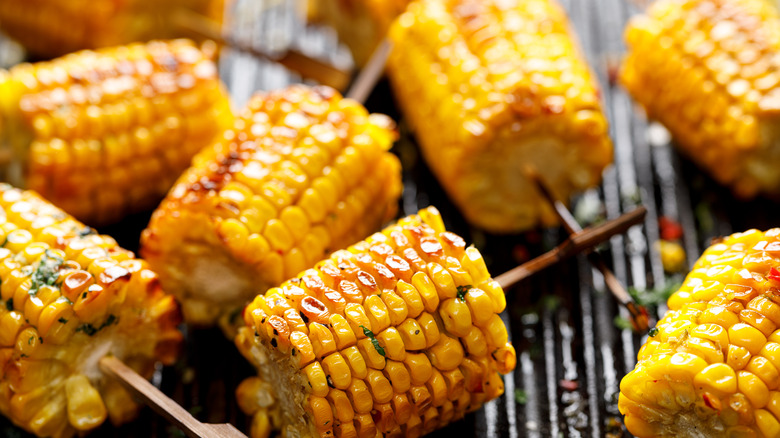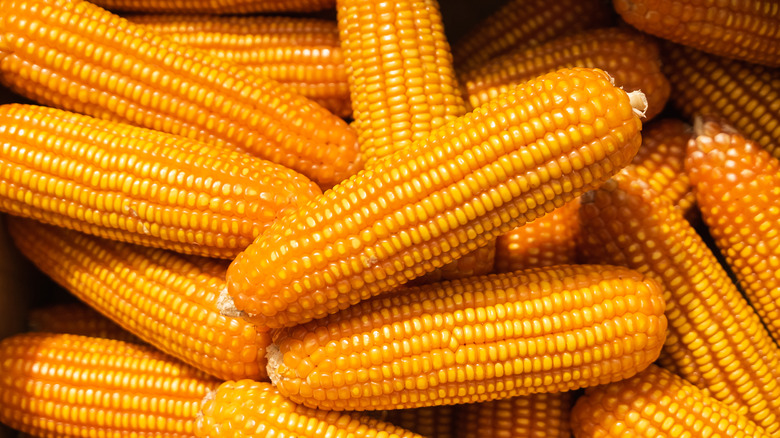What You Should Know Before Eating Raw Corn
Corn is an incredibly popular vegetable around the world, and you'll find it adorning the vegetable section of grocery stores in the U.S. all through the summer. While you may be used to the classic yellow corn, the Mayo Clinic reminds us that corn comes in multiple colors, ranging from white to red, orange, purple, black, and blue. Regardless of the color, you should know that they all offer a wide range of health benefits.
The vegetable has received a bad rap for containing high levels of starch and sugars, as per WebMD. However, corn is chock full of fiber to help you stay satiated for longer, while also providing sustenance to the healthy bacteria in your digestive tract. In addition, it contains vitamin C, which is great for protecting your cells from damage and fortifying your immune system. If that wasn't enough, you'll benefit from an array of other vitamins and minerals when you eat corn, including potassium, magnesium, and vitamins K, E, and B.
Another perk of including corn in your diet is that it can be prepared in a variety of ways, allowing you to incorporate it into many different dishes. You may enjoy it boiled on the cob or grilled alongside a burger during a summer BBQ. Or, perhaps you prefer popping the dried kernels to make popcorn for a weekend movie night. If you've only ever cooked corn and are interested in trying it raw, there are a few things you should know.
Raw corn is safe to eat with a few precautions
There is no reason to abstain from eating raw corn if you're interested in doing so, as long as a few measures are taken (per Addicted to Veggies). Before you even bring the corn into your kitchen, you should be certain that it was recently harvested. Once a cob of corn is plucked from the stalk, the kernels begin producing an enzyme that makes the vegetable taste less sweet — if you're eating it raw, you definitely don't want to risk taking away this essential flavor (via Vacmaster Fresh).
Another important precaution to take before eating raw corn is to thoroughly wash it ahead of time (via Addicted to Veggies). This goes a long way in preventing accidental consumption of Salmonella, a harmful bacteria that can live on corn and lead to a number of distressing digestive problems when ingested, including vomiting and diarrhea. Since you won't be cooking the corn to kill off any potential bacteria, washing it is the best way to get rid of these microscopic pests.
It's also important to note that raw corn is not easily digested by the human body. In fact, experts recommend only consuming it once per week to avoid any potential constipation, gas, bloating, and stomach cramps. As long as you prep your raw corn properly, you can enjoy it in a variety of ways. This includes combining it with cooked beans to make a complete protein, points out Oh My Veggies.

